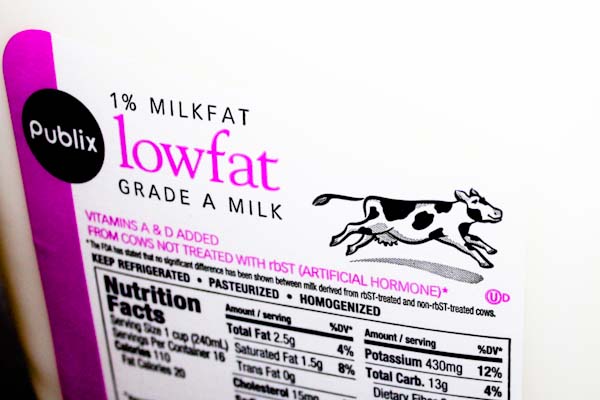Here are Part 1 and Part 2 in this series, in case you want to read them first.
I didn’t know food was such a controversial topic. I knew people had different opinions about certain things—that some people believe organic food is worth the extra cost and others don’t. More people are avoiding gluten these days and plenty of people are still anti-carb. Obviously, McDonald’s is bad for us, but don’t we all love a hot cheeseburger, especially on a 59 cent Wednesday? Overall I assumed I couldn’t go wrong with a low fat diet, especially if I didn’t eat too much.
Then about a year ago a friend mentioned Weston A. Price. I looked him up and learned he was a holistic dentist who spent the 1920s and ‘30s traveling the world studying “primitive” people who thrived on all-natural diets and then deteriorated once they adopted modern diets which included plenty of refined sugar, flour, and canned foods. I stumbled onto the website of the Weston A. Price Foundation, and learned there is a large group of people today who think soy products and vegetable oils are toxic and who believe we should regularly consume cod liver oil, raw dairy, and whenever possible, organ meats. These people don’t connect saturated fat or cholesterol with disease of any kind and consider butter a health food.
Crazy, right? Price and his following quickly faded from my mind.
Then a few months ago I read Michael Pollan’s The Omnivore’s Dilemma. It explains how America’s food industry works. Most of the information was new to me. I had no idea how much corn and corn products are in our food or that most of the meat in the grocery store comes from animals who also eat corn, even though that’s not what their bodies are built to digest. Apparently, corn is cheap and easy to grow and fattens animals quickly. It can also make them sick, which is why so many of them need antibiotics.
 The more I read, the more I was struck by how artificial our food is. It’s understandable when you’re buying Lucky Charms, but what about the basics? I always assumed milk was milk, and that skim milk was just milk minus the fat. (It’s not.) When I pick up a gallon of milk, I picture a cow in a field that spends a couple hours a day in the barn getting milked. Don’t most milk containers have the image of a happy cow on them? To be honest, I didn’t think about it much. I figured the cows, pigs, and chickens that provide food for us weren’t living in luxury, but I didn’t know just how miserable their lives really are. Or that the stress they endure from their manufactured diets and habitats lowers the nutritional quality of the food they produce.
The more I read, the more I was struck by how artificial our food is. It’s understandable when you’re buying Lucky Charms, but what about the basics? I always assumed milk was milk, and that skim milk was just milk minus the fat. (It’s not.) When I pick up a gallon of milk, I picture a cow in a field that spends a couple hours a day in the barn getting milked. Don’t most milk containers have the image of a happy cow on them? To be honest, I didn’t think about it much. I figured the cows, pigs, and chickens that provide food for us weren’t living in luxury, but I didn’t know just how miserable their lives really are. Or that the stress they endure from their manufactured diets and habitats lowers the nutritional quality of the food they produce.
As soon as I finished The Omnivore’s Dilemma, I picked up Pollan’s next book, In Defense of Food. In it, Pollan mentions Price and several other researchers from the 1920s and 30s who studied isolated groups of people that had not been exposed to the Western diet. “They compiled lists,” Pollan writes, “of the common diseases they’d been hard pressed to find in the native populations they had treated or studied: little to no heart disease, diabetes, cancer, obesity, hypertension, or stroke; no appendicitis, diverticulitis, malformed dental arches, or tooth decay; no varicose veins, ulcers, or hemorrhoids.”
I might have known junk food contributes to poor health, but it never occurred to me that it might cause a problem like varicose veins. Or even tooth decay, really. I thought that happened because we don’t floss enough. But the people Price studied didn’t even have toothbrushes and most of them had no decay in their teeth at all. I honestly can’t imagine our country without heart disease or cancer. Are all these issues caused primarily by our diet? It seems too simple to be right.
At the same time, it seems arrogant to think we can live on processed food loaded with additives, cover our produce with chemicals, and treat our animals so carelessly without facing any consequences.
So are you wondering if I’ve decided to feed my family cod liver oil and organ meats?
To Be Continued

What is so egregious about how cows are dealt with is that cows are ruminates. Their food is broken down by bacteria and much of a ruminant’s sustenance comes from the “waste” produced by the bacteria. When you feed them grains and corn, it can wreak havoc on this masterfully ingenious system leading to liver abscesses and a host of other ills, including, surprise, making them fatty. So to fatten a cow, you want to feed it grains (whole grains no less) and corn. What might you feed a human to make them fat… one guess. Here is a good breakdown on digestion for humans and ruminants:
http://www.gnolls.org/1444/does-meat-rot-in-your-colon-no-what-does-beans-grains-and-vegetables/
BTW, here is an interesting links on reproductive health.
http://thatpaleoguy.blogspot.com/2011/04/eat-meat-for-better-reproductive-health.html
Linni- So glad to read your blog again! This food debate makes my mind dizzy! It’s too much. However, I wonder what about my diet may have contributed to my crohn’s (although I thought my mom fed me pretty healthily….). I tend to go back and forth between organic/non organic and gluten/no gluten and then again between just low white flour/sugar…… Although that’s just for my hubby and I, haven’t gone there with my kids yet!!!! Anyway, great writing and I second your friend who suggested you submit this to a health/food magazine!
Thanks Nancy! I’ll always remember those gourmet dinners your mom made that we didn’t appreciate nearly enough!
Preach it, sister! Love Pollan’s stuff. And hate it because it’s tough to live out. I’ve got a garden but not sure how to keep the cow in my backyard!
Ha ha, Niki! Very true.
Okay, so I really don’t ever reply on any blogs or anything, but I had to on this one cause it was so fun and it was your blog! I am into WAP and I try to feed my family this way, minus a lot of grains since the beginning of this year for health issues. It was fun to see that you are reading about all of this/thinking about it. I know there are a lot of intelligent options and opinions out there. Anyway, I didn’t know you had a new blog. You are such a precious lady and I hope you’re doing well!
Good for you Sara! Hope you’re doing well.
Linni~ love that you are blogging again!!
This post reminds me of a cookbook I love- ‘Nourishing Traditions- The cookbook that challenges politically correct nutrition and the diet dictocrats’ by Sally Fallon. It’s a cookbook but loaded with excerpts from various studies, especially ones on indigenous cultures, and different tidbits of research packed on the pages- she too thinks of butter {from grass fed healthy cows} as a nutrient rich food and challenges the use of veg. oils and other stuff along those lines. I haven’t brought myself to venture into the organ meat recipes and most likely never will, but it sure challenged and changed my concept of what is healthy and what isn’t.
Love & hugs~ Jess
Jess, I’m reading that book right now.
Linni this is so interesting! i never thought so many different foods had so many different impacts on peoples’ health. Price is on to something.
Thanks for reading my blog, Marta.
I’ve been reading your blog… it’s so good. Thank you for writing your thoughts. Your story has really touched me. The food thing has become a super big deal in my family too. My dad had a heart attack and had two stints put in back in January, and since then my whole family has changed the way we eat. It was really hard for my dad to figure out the right stuff to eat because there were so many differing opinions. Most doctors told him to eat low fat and drink skim milk, etc. But my mom had been reading nourishing traditions and questioned if low fat was truly the right way to go. Long story short my dad prayed that the Lord would lead him and I truly believe He has. In all of my family’s research we came across Dr. Josh Axe who is a Christian and has a wellness practice in Nashville. Out of all the gurus I have come across, I think he has been able to make the most sense out of everything from vaccinating your children to cooking great meals without much time. His real food cookbook is incredibly simple. Changing how we have done things for so long can feel totally overwhelming and I am not yet making my own stock or fermenting my own kambucha yet… but we are buying raw milk and hunting down as much grass fed, free range meat as possible ;). I do believe though that a lot of people are starting to hear from the Lord on this. Like a big wake up call.
http://www.draxe.com/
I also like the healthy home economist… she is very big into the WAPF. Although sometimes she can be a little over the top like “Breakfast cereals are all toxic!” 😉
http://www.thehealthyhomeeconomist.com/
Thank you so much for your comment, Claire. I will definitely check out those two websites. And you know, breakfast cereals are the hardest thing–I just LOVE them! I wonder if I could somehow make my own healthy version…